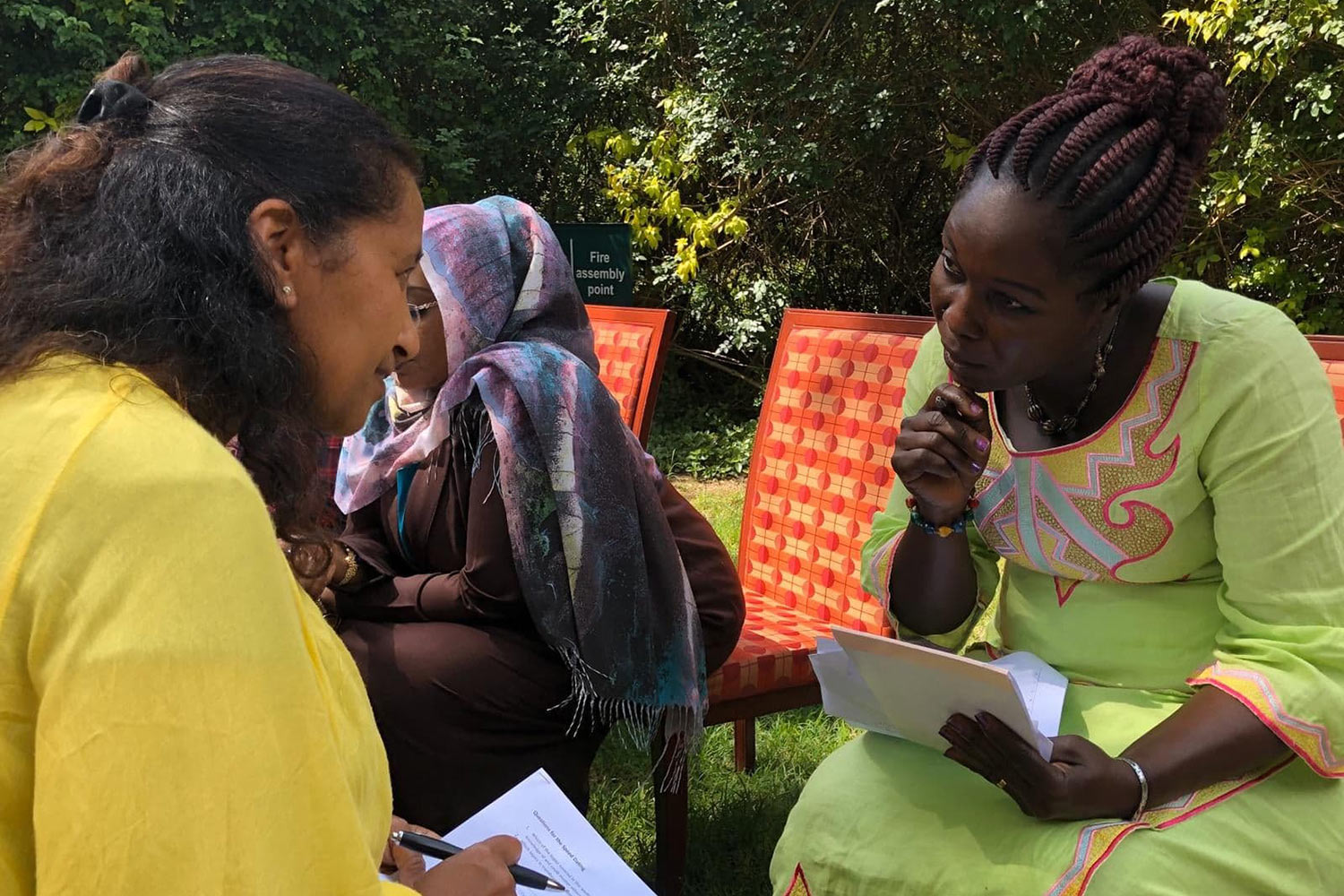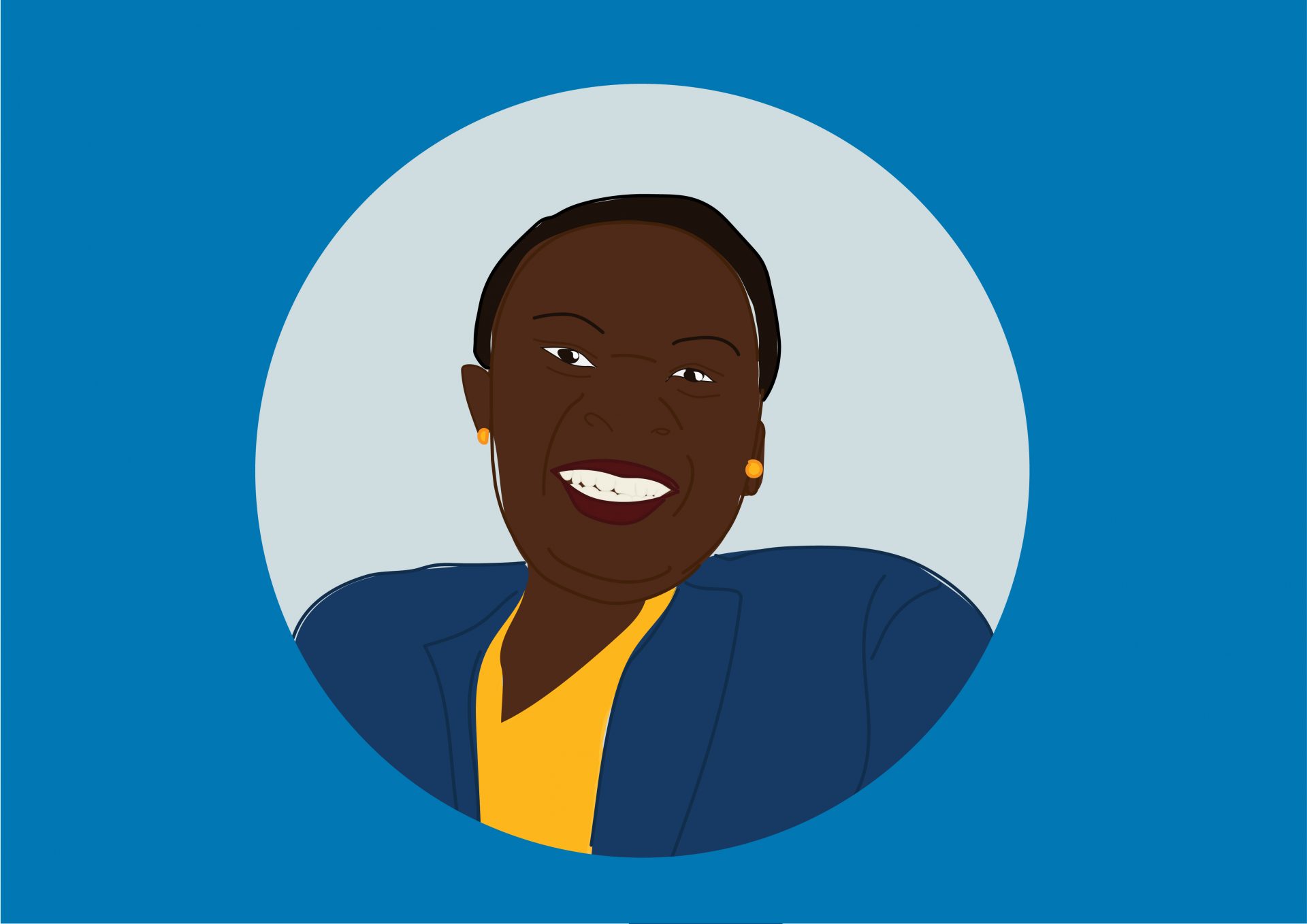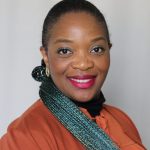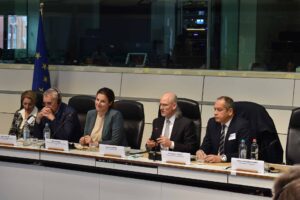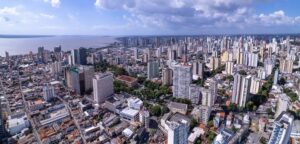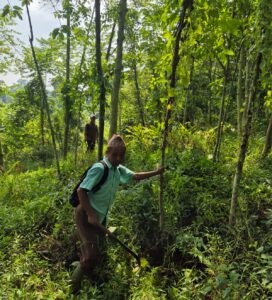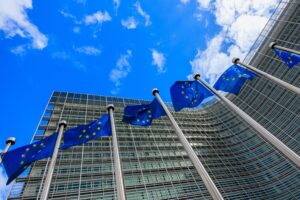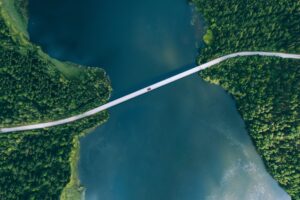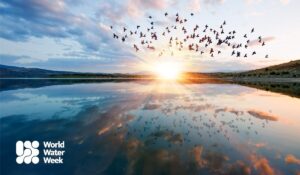Water is a woman’s affair. Theresa Wasike, Ministry of Water, Kenya
“My dream is that us women will meet at the negotiation table from different countries but with the same dream.”
Are there any challenges faced in the diplomacy space, being from the Global South?
Being from the South is a challenge on its own. One of the challenges is exposure, in terms of attending high-level meetings for the first time. And sometimes you’re out of your depth. In the process, you meet people who are better exposed to those situations. You question your ability to accomplish the task assigned. The other issue is still connected to exposure – not having relevant education and adequate training in your area of specialization hinders someone from realizing her full potential.
So yes, I think exposure and education have been a challenge for me.
How are environmental and societal problems associated with water?
If we had enough water or were managing it better, I think we would not be facing some of the problems that we are facing now. In Kenya for instance, agriculture is the backbone of our economy. Climate change is really impacting us negatively. We have people who are losing their animals because of droughts, falling deeper into poverty. All of this is connected to water. This is happening in parts of Kenya which are not next to Lake Victoria. But even for communities around Lake Victoria, the quality of water is going down due to environmental degradation. The quality of water is compromised and livelihoods are affected.
So, water is very important, because when you lack water, that’s when you get conflict and you can’t do your everyday work, like go to farming. It affects you negatively.
And how is The Women in Water Diplomacy Network in the Nile dealing with some of these challenges?
We are committed to look at the problems that this region is experiencing with neutrality. We don’t take sides. We have committed ourselves to try and bring out issues of the Nile and emphasise the importance of having challenges resolved. So, we don’t look at which country [the other person] comes from. If these problems are resolved then we are assured of a better life.
What would an ideal world for women in water look like?
My dream is that with time we will meet at the negotiation table, people from different countries, but with the same dream. That we raise issues that hinder our development, in a coherent and peaceful manner, and resolve those issues. Without any friction or without seeing each other as being from different countries. We should be able to look at each other and understand what is being said. And then we come to a decision that is beneficial to all.
What message would you like to give to young women who are working in the water community?
I would like to encourage them, because what I’ve seen with the young women. In Kenya, for example is that they come into the water sector and soon after they leave. I want to encourage them to stay. We need to keep them in the sector so that they can encourage more girls who are still in school to pursue professional water courses by mentoring and coaching them.
Engineers are often placed where the water infrastructure is, in remote areas or in areas. That is usually not a place where a young mother feel that her children will get a very good education. So, instead of staying in such places, they would rather move to places where they are assured quality education and health services for their children. As engineers and geologists, not having more women in the field can make them feel a bit lonely. No one seems to understand them, so they look for other options.
So, I want to encourage them and tell them to keep going so that more women can join the water sector. If more women join it can change how the future looks, because then again, decisions will be made centred around women. Some of these problems are not even accounted for at this point.
Women in Water Diplomacy network in the Nile
The Women in Water Diplomacy Network engages senior and mid-career women professionals from Ministries of Water and Ministries of Foreign Affairs, as well as other relevant line ministries from across the Nile Basin.
Read more about the project here